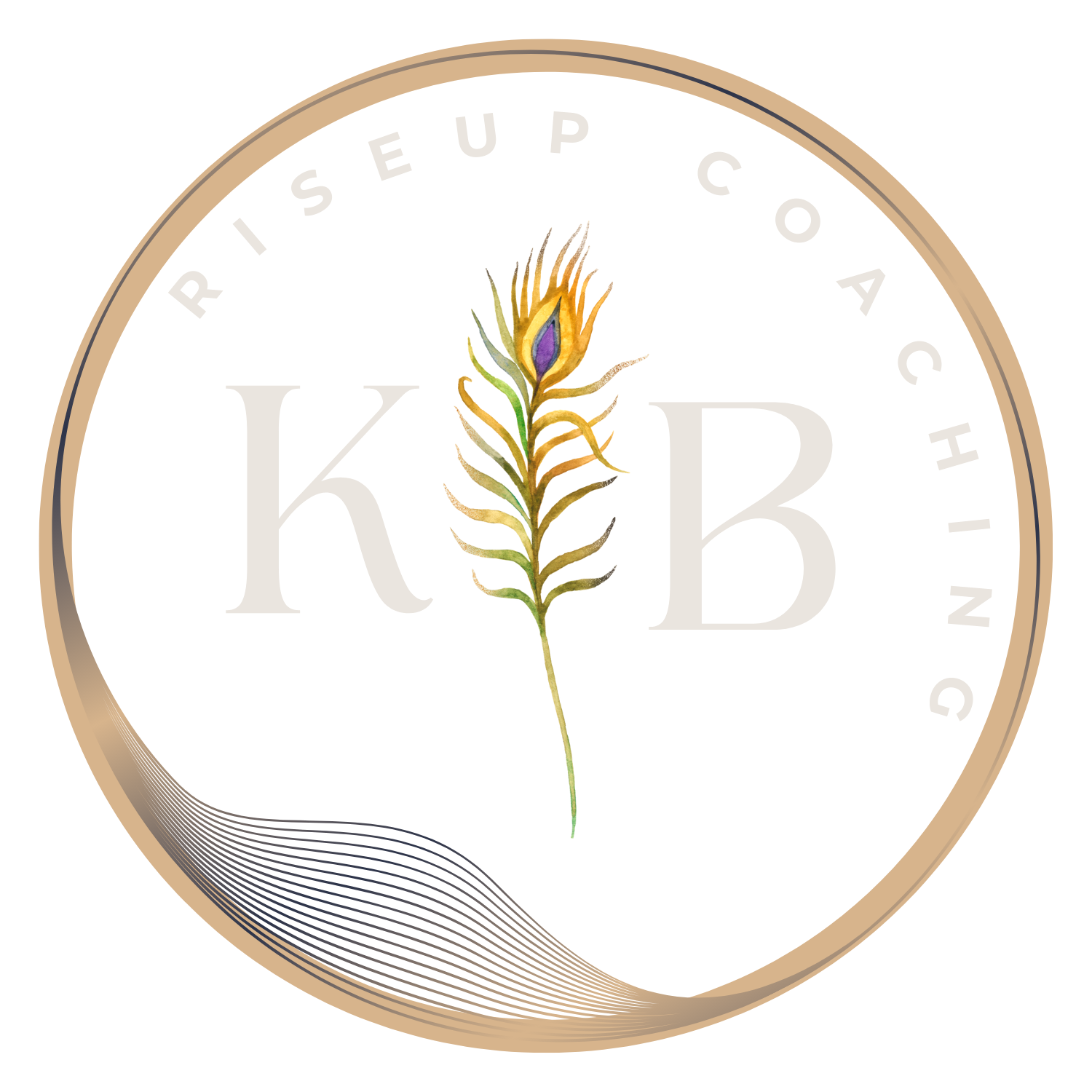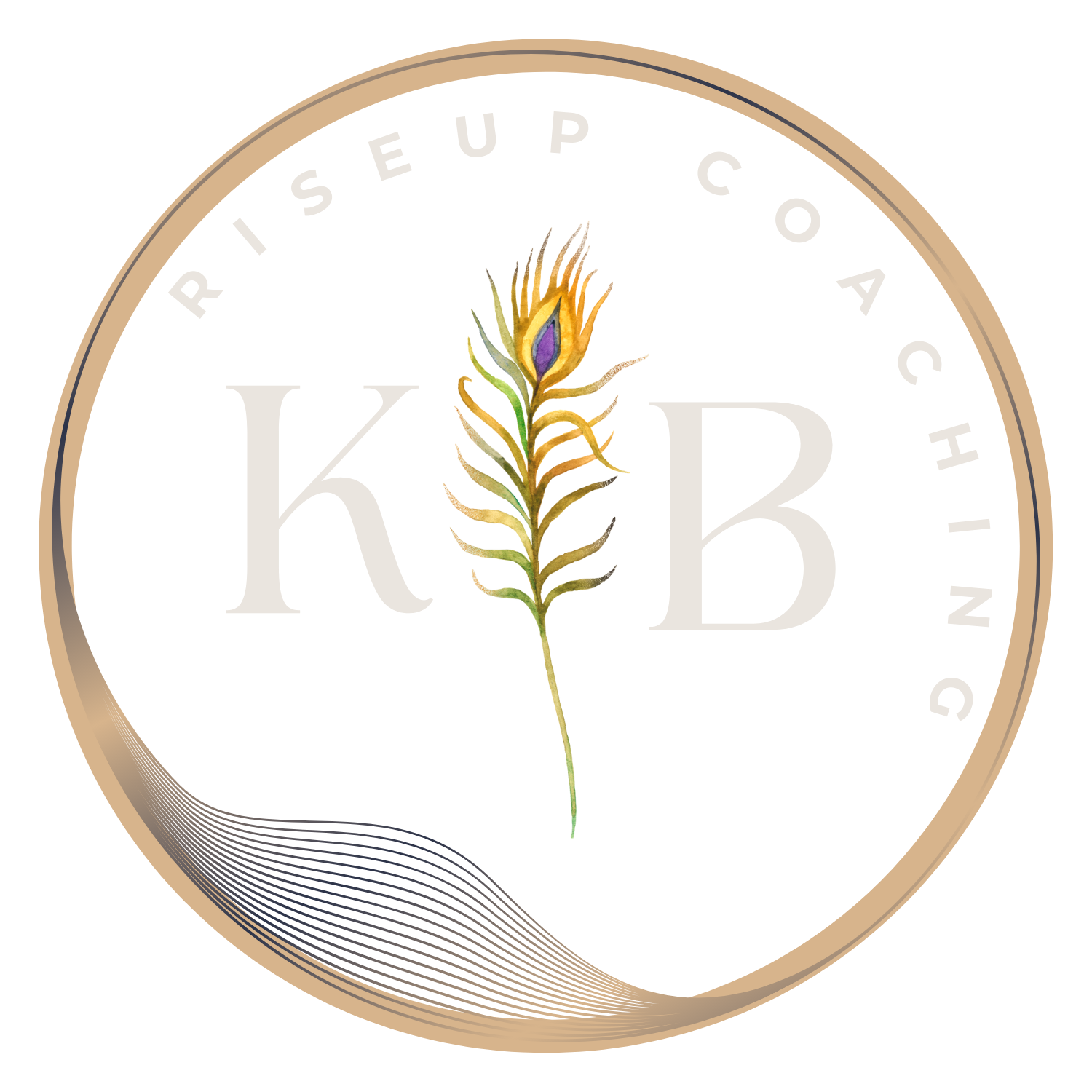
RiseUP Coaching
Blog, Videos and Overall Resource Library

The Unseen Enemy: Stress and Overwhelm
“Many of us feel stress and get overwhelmed not because we're taking on too much, but because we're taking on too little of what really strengthens us .” - Marcus Buckingham

Knowledge is the bedrock of personal empowerment and a crucial ally in the journey toward a fulfilling life. However, when we find ourselves in the dark about the essentials of our well-being—be it in managing stress, understanding mental health, or maintaining physical health—our empowerment is compromised.
Ignorance in these key areas is like navigating a ship without a compass; we become vulnerable to the tumultuous seas of life's challenges, often without even recognizing the storms we're in.
The consequences of not having the necessary knowledge or awareness are profound. Without understanding how to manage stress, we risk letting it become a chronic companion, silently undermining our relationships, productivity, and happiness.
In the realm of mental health, not knowing or addressing the issues can keep us shackled in invisible chains, limiting our potential and quality of life. Similarly, ignorance about physical health can lead us down a path of preventable diseases and diminished vitality.
As we embark on the quest for transformative change, it's essential to shed light on these critical areas.
In line with the teachings of the 'Unlearn the Crap' book, this article will illuminate the ripple effect of ignorance on empowerment and well-being, and underscore the importance of arming oneself with knowledge to navigate life's complexities with confidence and resilience.
The Unseen Enemy: Stress and Overwhelm
In the modern whirlwind of life, it’s easy to overlook the creeping signs of stress and overwhelm. They often begin quietly, a low hum beneath the surface of our daily routines. But make no mistake; these are not mere nuisances to brush aside. The lack of awareness about stress management can lead to chronic stress, a pervasive force that seeps into every crevice of our existence, affecting our mental clarity, emotional balance, and physical health.
The insidious nature of chronic stress is that it can become a default state of being, making it all the more difficult to recognize and address.

It's the water we swim in, the air we breathe, and before we know it, it's shaping our reactions, decisions, and outlook on life. It can erode our sense of joy, stifle our creativity, and dampen our drive to pursue our goals.
When stress goes unchecked, it can trigger a cascade of negative consequences. Our sleep may suffer, leading to fatigue and a compromised immune system.
Our relationships may strain under the weight of our irritability or withdrawal. Our work performance may decline as concentration falters and motivation wanes.
Overwhelm sets in, and the once manageable daily tasks become mountains too steep to climb.
But why does this happen? Often, it’s because we’ve never learned the proper tools to manage stress.
Our society prizes the grind, the hustle, the constant push for productivity at the expense of rest and reflection.
We might even wear our busyness as a badge of honor, not realizing that in doing so, we’re glorifying the very thing that is diminishing our quality of life.
The solution lies in education and action. By understanding the physiological and psychological mechanisms of stress, we can begin to unravel its grip on us. This knowledge empowers us to implement strategies that can mitigate stress's impact.
The "Unlearn the Crap" book dives deep into this territory, offering valuable insights into how we can dismantle the stress patterns that have been woven into our lifestyles. It provides actionable guidance to help readers rise above the fray and reclaim their power over stress and overwhelm.
By unlearning the harmful habits and mindsets that fuel these silent adversaries, we can pave the way for a life marked not by constant pressure, but by peace and productivity.
Mental Health in the Shadows

In the labyrinth of mental health, ignorance is not bliss—it's a shroud that darkens our understanding of ourselves and others.
Mental health issues often operate in the shadows, unseen and unaddressed, because many lack the awareness to spot the telltale signs or the knowledge to seek help. The implications of this oversight are vast and can reverberate throughout every aspect of life.
Imagine walking through life with an invisible weight shackled to your ankle. It drags behind you, unseen by others, but its presence is felt in every step you take. That is the burden of unaddressed mental health issues. They can manifest as subtle as a persistent feeling of sadness, or as debilitating as a paralyzing anxiety. Either way, they're there, pulling at the seams of our well-being, yet often remaining unspoken and misunderstood.
This silence around mental health is partly cultural—many societies stigmatize mental illness, equating it with weakness or failure. As a result, individuals may choose to suffer in silence rather than risk the judgment or misunderstanding of others.
This stigma perpetuates a cycle of ignorance, where the lack of open dialogue prevents the collective knowledge and empathy that could otherwise bring light to these dark corners.
The power of knowledge in the domain of mental health cannot be overstated. Understanding mental health is like turning on a flashlight in a dark room—the shadows recede, and what was once menacing becomes manageable.
We can create a ripple effect of awareness that not only changes individual lives but also reshapes societies. With knowledge as our ally, we can transform the way we view and approach mental health, leading to a future where no one has to walk their journey in darkness.
Physical Health: The Knowledge Deficit
When it comes to physical health, the old adage “what you don’t know can’t hurt you” couldn’t be further from the truth.
In reality, what we don’t know about our bodies, its language, and communication can have serious, long-lasting impacts.

The knowledge deficit in this vital area can lead to a cascade of preventable health conditions, a lower quality of life, and an increased burden on healthcare systems.
Imagine navigating a complex network of roads without a map or signs; that's akin to managing your life without the necessary knowledge.
This can set the stage for chronic diseases such as diabetes, heart disease, and obesity, which are not only costly to individuals but also to society as a whole.
The lack of awareness can also lead to an over-reliance on quick fixes, like fad diets or unproven health trends, which often promise much but deliver little. This search for shortcuts can distract from the proven, though perhaps less glamorous, methods of self knowledge and empowerment.
The consequences of such a knowledge gap are not just physical; they spill over into emotional and mental health, creating a vicious cycle of poor health and wellbeing.
"Unlearn the Crap" confronts these issues head-on by dispelling myths and providing clear, accessible information about physical health. It encourages readers to question the source of their health knowledge and to be wary of misinformation.
The book offers practical advice for making informed decisions that can lead to transformative change. It stresses the importance of understanding our bodies’ signals.
By bridging the knowledge deficit, we empower individuals to make choices that enhance their lives.
Knowledge equips us with the tools to navigate the complexities of life, just as a map guides us through unknown territories. It's the foundation upon which we can build a healthier, more vibrant future for ourselves and our communities.
Empowerment Through Awareness

The journey of empowerment is one that is often marked by a series of enlightening realizations.
Knowledge is not just a tool; it's a catalyst for profound change, especially when it comes to dismantling the misconceptions and limiting beliefs that hold us back.
The act of "unlearning" is as crucial as learning itself, for it involves stripping away the layers of "crap"—the falsehoods and negative patterns we've accumulated over time.
Empowerment through awareness is about seeing the world, and ourselves, with new eyes. It is about becoming conscious of the silent scripts that run our lives and having the courage to rewrite them.
When we become aware of the sources of our stress, the roots of our mental health struggles, and the foundations of our physical well-being, we gain the power to change our narrative.
The "Unlearn the Crap" book embodies this transformative power. It offers readers actionable insights into how to gain control over their lives, not by adding more to their already full plates, but by removing what no longer serves them.
It encourages readers to question their long-held beliefs and to challenge the status quo of their thought patterns. This process of unlearning creates space for new knowledge and experiences that can lead to growth and empowerment.
When we understand the mechanics of stress, we can prevent it from overwhelming us.
When we recognize the signs of mental health issues, we can seek help before they deepen.
When we have accurate information about our physical health, we can make choices that enhance our well-being.
When we understand the power of our goals and dreams, they can lead us to our destiny and purpose.
This kind of awareness is empowering because it puts us in the driver's seat of our lives, navigating with our internal GPS as our guide.
The "Unlearn the Crap" approach is not about quick fixes or external validation. It's about building a solid foundation of self-awareness that allows for sustainable transformation. It's about developing an intimate knowledge of who we are, what we need, and how we can thrive. This process is inherently personal and deeply empowering.
Armed with knowledge and the will to apply it, we become architects of our future. We learn to set boundaries that protect our energy, make decisions that align with our core values, and cultivate habits that support our overall well-being. This is empowerment in action—a testament to the strength that comes from within when we choose to become aware and take charge of our lives.

"Unlearn the Crap" is more than just a book; it's a movement toward conscious living. It's a gateway to empowerment through awareness, a path that leads to a more authentic, resilient, and fulfilling life. By embracing the teachings within its pages, we can initiate a ripple effect of positive change that extends far beyond ourselves, touching the lives of those around us and contributing to a more enlightened world.
As we draw the curtain on this exploration of the perils of ignorance and the transformative power of knowledge, it's clear that the stakes are high. Our well-being, our empowerment, and ultimately, our potential for a life well-lived hinge on our willingness to educate ourselves. The journey is not always easy, nor is the path always clear, but the rewards of such an endeavor are boundless.
The teachings of "Unlearn the Crap" are an urgent call to action for anyone feeling stuck in the quicksand of stress, the shadows of mental health struggles, or the maze of physical wellness.
It's a beacon for those who seek to navigate the complexities of life with grace, strength, and self-awareness.
By challenging us to dismantle the outdated and harmful beliefs we carry, this book lights the way to a brighter, more empowered existence.
Now is the time to take that first step toward knowledge and change.
Join the conversation in our Facebook Live event on Tuesday, November 21st.
Your participation is not just an investment in yourself—it's a declaration that you are ready to embrace a life of clarity, control, and empowerment.
Let's not underestimate the ripple effect of our collective efforts to unlearn the unnecessary and embrace the essential. Together, we can forge a future where knowledge isn't just a resource—it's a revolution.
Choose knowledge, choose action, choose a life unburdened by the "crap" that holds you back.
Attend the Facebook Live Event
Unlearn the unnecessary. Empower your life. Start now.
Sign Up for Updates Here

Book a Call

